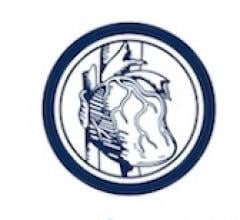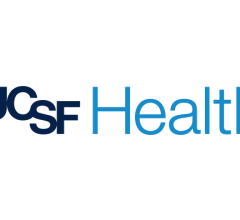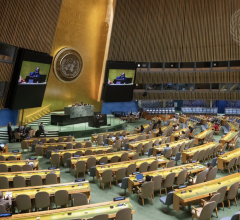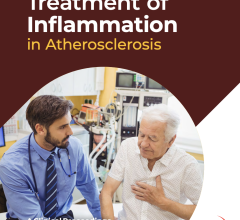
Getty Images
August 30, 2023 — “Joining forces to protect the heart – this was our mission for this year’s ESC Congress,” said Professor Franz Weidinger, ESC President. “Cardiovascular (CV) medicine has been tremendously successful in improving and even prolonging life through paramount achievements over the last decades. Now it’s time to make sure that all of our patients who need treatment do get it – timely, effectively, sustainably. This is why we need to join forces as CV professionals, industry, policymakers, and patients.”
More than 30,000 health professionals from 175 countries attended this year’s meeting, 24,000 onsite and 6,000 online. Novel findings were revealed in more than 3,750 abstracts and clinical cases presented by scientists from 86 countries. Germany led the way with the most abstracts, followed by the United States and Japan. Some 82 studies were simultaneously published in prestigious journals.
The shocking cost of CV disease in the EU was revealed in the most comprehensive analysis since 2006. CV disease cost the EU an estimated €282 billion in 2021, significantly more than the entire EU budget itself – underscoring the urgent need to act collectively on the European scale to better combat the CV risk of European citizens.
Professor John McMurray, ESC Congress Program Committee Chair, said: “ESC Congress had a groundbreaking program featuring the hottest cardiovascular science of the year and covering the entire field of CV medicine.”
Practice-changing research was presented throughout the congress, with major new findings in the Hot Lines. The Hot Line program kicked off with STEP-HFpEF, the first trial of a pharmacologic agent to specifically target obesity as a treatment strategy for heart failure with preserved ejection fraction, and indicating that obesity is a target for therapeutic intervention in this vulnerable patient group. Next up was NOAH-AFNET 6, which showed that anticoagulants cause bleeding without preventing stroke in patients with atrial high-rate episodes (AHRE), but without electrocardiogram (ECG)-diagnosed atrial fibrillation. The results of this major trial suggest that ECG documentation of atrial fibrillation is needed before starting oral anticoagulation in patients with AHRE. Rounding off Hot Line session 1 was COP-AF, a trial in patients undergoing major non-cardiac thoracic surgery, which found that colchicine does not significantly reduce perioperative atrial fibrillation or myocardial injury after non-cardiac surgery.
Definitive conclusions about the role of iron therapy in iron-deficient patients with heart failure and reduced ejection fraction were presented in the ferric carboxymaltose meta-analysis, which demonstrated a link with reduced hospitalization. Another important meta-analysis showed that intravascular imaging-guided percutaneous coronary intervention (PCI) is associated with a lower rate of target lesion failure compared with angiography-guided PCI.
New ESC Guidelines were launched that will influence clinical practice across Europe and beyond. Professor McMurray said: “Four new Guidelines were presented, covering acute coronary syndromes, endocarditis, cardiovascular disease in diabetes and cardiomyopathies – the first guideline of its kind. A focused update on the 2021 heart failure Guideline was also presented at ESC Congress, reflecting the tremendous and rapid progress in this condition even in just the past two years. Heart failure is both the cause and the consequence of the many conditions that are managed by CV health professionals, and was the spotlight of this year’s congress.”
“Another highlight was the Digital Health Hub, featuring 37 sessions on the application of new technologies to all subspecialties of cardiology,” said Professor McMurray. “Cardiovascular health professionals attending ESC Congress are now equipped with the latest medical knowledge to improve their clinical practice, save lives, improve quality of life and reduce the burden of CV disease around the world.”
ESC Congress 2023 generated extensive international press coverage. Popular stories included:
- Weight loss medication benefits patients with heart failure and obesity (STEP-HFpEF trial, Hot Line 1)
- Sedentary time in children linked with heart damage in young adulthood (Moderated e-poster)
- Ambulances should take cardiac arrest victims to closest emergency department (ARREST trial, Hot Line 5)
- Keep fit to avoid heart rhythm disorder and stroke (Abstract session)
- Smokers who start below age 20 become more addicted and find it difficult to quit (Moderated e-poster)
ESC Congress 2023 has closed its doors, but ESC staff are already getting ready for ESC Congress 2024, to be held in London, UK from 30 August to 2 September 2024.
For more information: www.escardio.org


 February 04, 2026
February 04, 2026 









